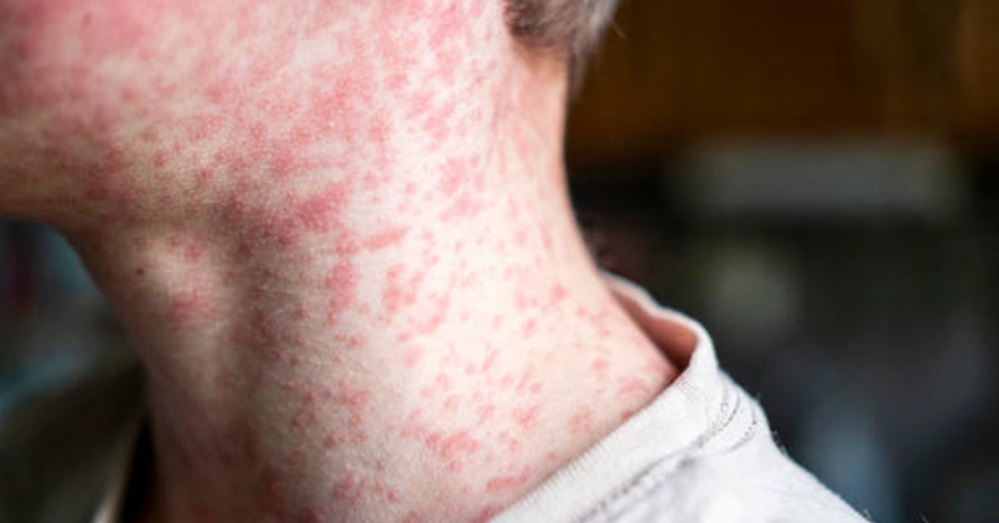Measles Outbreak: What to Know From The Future of Health

According to the Texas Department of State Health Services, there are over 640 cases of Measles across the state confirmed since late January - a number that is growing by the day. The outbreak of measles is primarily in West Texas. Based on the most recent data, DSHS has identified designated outbreak counties with ongoing measles transmission: Cochran, Dallam, Dawson, Gaines, Garza, Lynn, Lamar, Lubbock, Terry and Yoakum. As of April 24, 2025, the CDC notes a total of 884 confirmed measles cases reported by 30 jurisdictions across the country.
We sat down with one of our own experts to learn more about the disease, the outbreak and what the community needs to know about the disease. Kelissa Huse is an assistant professor and laboratory manager in the Molecular Pathology Program at TTUHSC.
Fast Facts - What is Measles?
According to the CDC, measles is a highly contagious respiratory virus that can cause serious health complications, especially in children younger than 5 years old. It is so contagious that if one person has it, up to 9 out of 10 people nearby will become infected if they are not protected.
Huse shares that it is so contagious because the virus can survive in the air for up to two hours, even after an infected individual leaves the area. Up to 90% of people who are not immune to the measles can contract the virus when exposed.
Huse says that historically, measles outbreaks used to be very uncommon, especially with vaccine improvement and development. The U.S. actually declared measles to be eliminated in the year 2000, meaning that any cases that were occurring in the U.S. were the result of patients traveling abroad and contracting the illness while they were abroad and then bringing it back into the country. She explains that since 2000, the highest number of annual cases was in 2019 and that was 1,282.
Not Your Typical Respiratory Virus

“A lot of people are like ‘oh, it's just a cough, or it's just a rash,’ but there are very serious symptoms besides the runny nose, the cough or the rash that can occur with measles,” Huse says. “The reason that this outbreak is occurring is due to a sharp decline in the number of people who are receiving the MMR vaccine – mostly children because we’ve seen a recent increase in the number of parents who are choosing to not vaccinate their child with the MMR vaccine.”
Huse explains that the majority of people who are contracting this disease are unvaccinated, but she says vaccinated people (people who have had both doses of the MMR vaccine) are still at risk, although that number is approximately 2% of cases.
MMR Vaccine
The Texas State Department Health Services has updated the vaccine recommendation timeline for outbreak areas, including Lubbock County and surrounding counties. Two doses prevent more than 97% of measles infections. Here is a quick breakdown of the recommendations shared by the Texas Tribune:
- Children 6 to 11 months receive an “outbreak” dose of the MMR vaccine if they live or are traveling to an outbreak county
- Children over 12 months old who have not been vaccinated with the MMR vaccine receive one dose and follow up with a second at least 28 days later
- Teens and adults should also be up to date on their MMR vaccination
- Adults born between 1957 and 1968 who only received one MMR vaccine from that time period should consider getting one dose of the current vaccine
- Adults born before 1957, pregnant women, and people with severe immunodeficiency are not recommended to receive any dose of MMR vaccine
Huse says you technically have lifetime immunity to measles if vaccinated with the recommended two doses and that complications from vaccines are very rare. But for those concerned about vaccine complications or for those who have questions about getting re-vaccinated, she encourages speaking with a healthcare provider to learn more.
Signs and Symptoms
The majority of people infected with measles are going to suffer from these common symptoms:
- High fever (up to 105 degrees Fahrenheit)
- A cough, runny nose, red and watery eyes
- A rash - usually beginning in the mouth
Less common complications:
- Ear infections
- Diarrhea
- Trouble breathing
More serious complications:
- Pneumonia
- Encephalitis
Treatment
Huse recommends contacting your provider first if you know that you have been exposed to see what they recommend regarding testing, treatment and precautions. She warns against physically going to your doctor's office unless prompted because you could unnecessarily expose others.
Because Measles is a viral infection, doctors are likely to be focused on treating the symptoms. Other treatment options include the administration of vitamin A, which should only be done under a doctor's guidance.
Protection and Prevention
In order to protect yourself and others from Measles, Huse recommends these four things:
- Isolate if you suspect you’ve been exposed
- Wear a mask when going somewhere if you’re concerned about being exposed.
- Practice good hand hygiene and avoid touching your face.
- Vaccinate. The MMR vaccine is the best way to protect yourself and the immunocompromised.
The Future of Health: Note about the Molecular Pathology Program
Huse shared that TTUHSC students in the molecular pathology department are working on a project to design and validate an assay to test for a specific disease or genetic condition. One of the groups she mentored this year actually developed a reverse transcriptase PCR assay or RT PCR assay to detect the measles virus.
Related Stories
The John Wayne Cancer Foundation Surgical Oncology Fellowship Program at Texas Tech University Health Sciences Center Announced
TTUHSC is collaborating with the John Wayne Cancer Foundation and has established the Big Cure Endowment, which supports the university’s efforts to reduce cancer incidence and increase survivability of people in rural and underserved areas.
Making Mental Health a Priority in the New Year
Sarah Mallard Wakefield, M.D., a psychiatrist with Texas Tech Physicians, talks about strategies to combat widespread and growing anxiety.
TTUHSC Dean to be Inducted into the National Academies of Practice as Distinguished Fellow
Gerard E. Carrino, Ph.D., MPH, dean of the TTUHSC Julia Jones Matthews School of Population and Public Health, will be inducted into the National Academies of Practice (NAP) as a Distinguished Fellow of the Public Health Academy.
Recent Stories
The John Wayne Cancer Foundation Surgical Oncology Fellowship Program at Texas Tech University Health Sciences Center Announced
TTUHSC is collaborating with the John Wayne Cancer Foundation and has established the Big Cure Endowment, which supports the university’s efforts to reduce cancer incidence and increase survivability of people in rural and underserved areas.
TTUHSC Receives $1 Million Gift from Amarillo National Bank to Expand and Enhance Pediatric Care in the Panhandle
TTUHSC School of Medicine leaders accepted a $1 million philanthropic gift from Amarillo National Bank on Tuesday (Feb. 10), marking a transformational investment in pediatric care for the Texas Panhandle.
Texas Tech University Health Sciences Center Permian Basin Announces Pediatric Residency Program Gift
TTUHSC Permian Basin, along with the Permian Strategic Partnership and the Scharbauer Foundation, Feb. 5 announced a gift that will fund a new pediatric residency.
